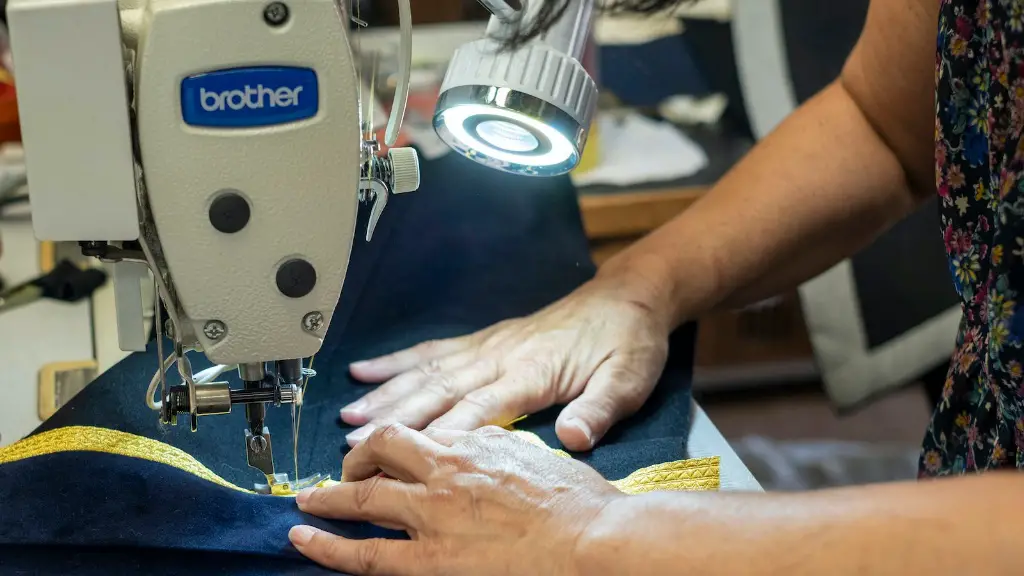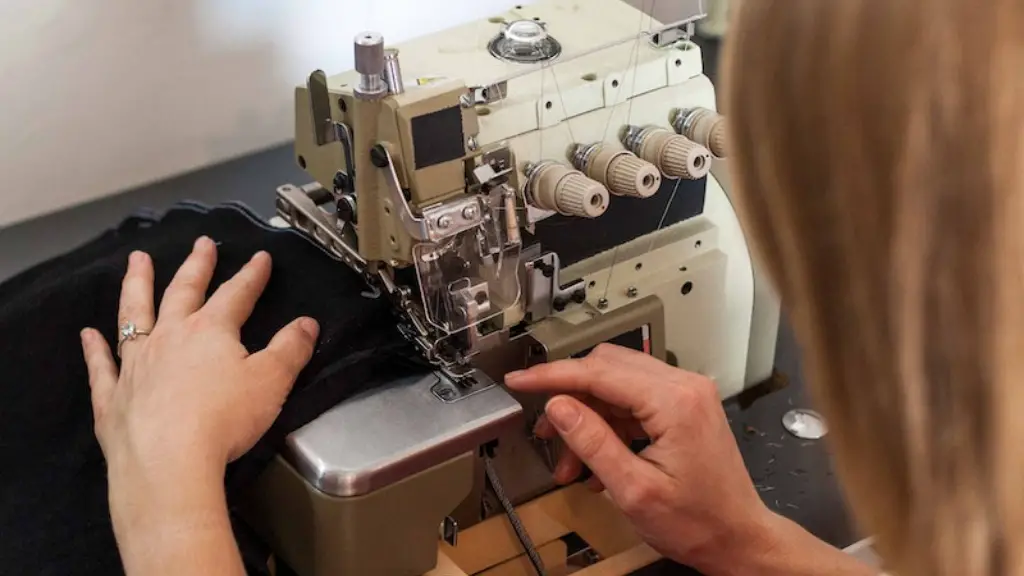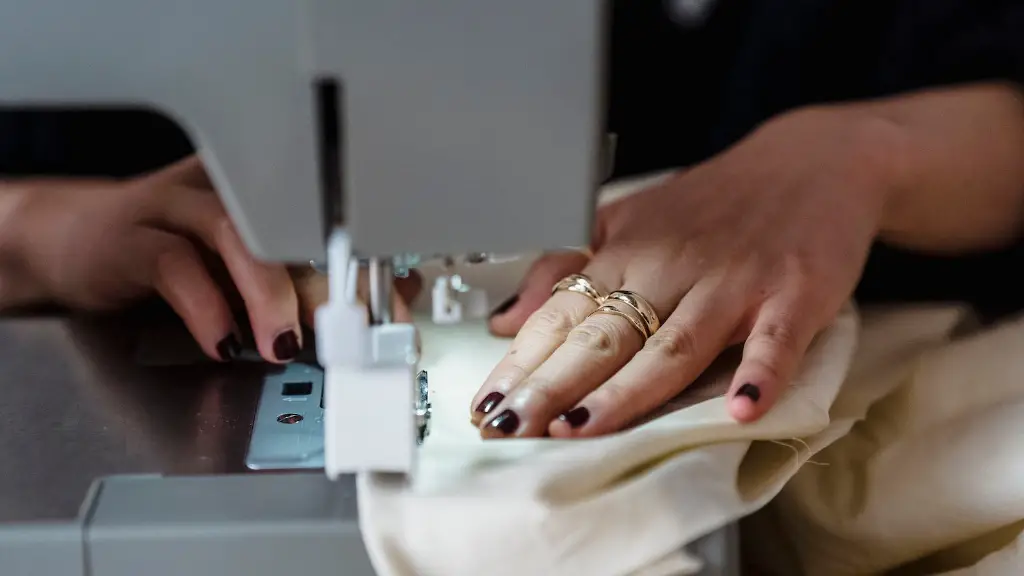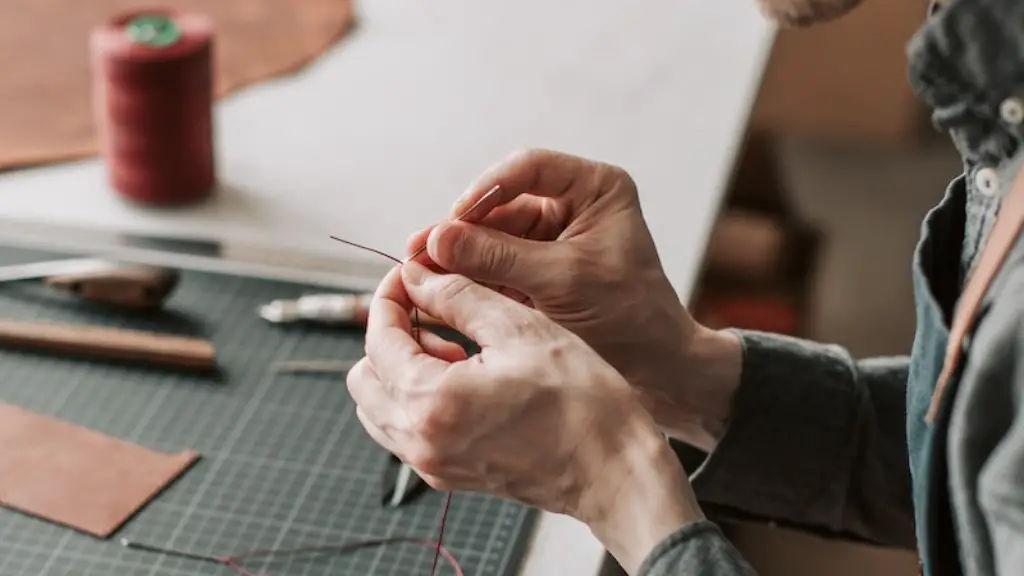Researching Suitable Models
Finding the right sewing machine for your needs can be quite a daunting task unless you know what to look out for. To make sure you get the perfect partner to embark on your sewing journey, it pays to do your research by considering the features and specs available. What is the sewing machine’s overall weight? How deeply can its needle penetrate the fabric? What stitches can it sew? How many user settings can be stored? Make sure you find answers to these questions and more to ensure that your chosen machine has the features and specs you are looking for.
Seeking Expert Assistance
Many experts suggest asking experienced sewers for advice when it comes to selecting a sewing machine. Experienced sewers can advise you on the features available, how well specific models function, how easily they can be maneuvered, and how much you should expect to pay. If you’re lucky, you may even be able to try out different machines before making your decision. Otherwise, look up online reviews to get an idea of what people are saying about specific models. It is also a good idea to keep your intended purpose in mind, as this will help you narrow down your selection.
Considering Cost and Warranty
Before buying a sewing machine, consider how much you are willing to spend. Consider if any extras are worth the cost and if it’s worth investing more to get a machine that will last you many years. It is also important to factor in the company’s warranty. Typically, the longer the warranty period, the better. Some companies even offer coverage for accidental damages. This should definitely be taken into account, as it could potentially save you a lot of money in repairs down the line.
Test Driving the Sewing Machine
Don’t forget to take a test drive. After researching, discussing with experienced sewers, and deciding on the features you want, it’s time to do a real-life trial. Bring plenty of fabrics and materials to test out, as well as some of your own favorites. That way, you can find out whether the machine can handle the type of material you usually work with. Don’t forget to also test the different stitch patterns and settings to make sure the machine does what you expect it to. Finally, ask the vendor or salesperson for a brief tutorial on how to use the machine, in case you end up taking it home as your new sewing companion.
Choosing a Sewing Machine Brand
Different companies manufacture different types of sewing machines, each with their own level of quality and style. Do your research to compare and contrast the pros and cons of different brands. Check reviews, user forums, and discussion boards to get a better feel for what’s out there and which brand and model are right for your needs. This research can also provide valuable insight on issues and problems you may encounter down the line.
Future Proofing Your Choice
Finally, consider whether you want a machine that can grow with you as your skills progress. Some machines may have limited features, so make sure you get one that will be suitable for the long-term. If you’re a beginner, look for models that offer a range of features and settings to ensure you don’t outgrow the features of the machine before you’ve even mastered the basics. The choice to future proof can also be beneficial if you plan to re-sell your machine when you’re ready to upgrade.
Extended Preparation for Sewing
As with most new endeavours in life, preparation is key. Before you set to work, make sure you have all the essential tools necessary to get started. Investing in a good worktable and lighting, as well as scissors, seam rippers, rotary cutters, and pressing tools can help make the process of sewing a lot easier. Of course, don’t forget your fabric, thread, and needles. Buying quality items at this stage is important as they will last a lot longer and make your finished project look and feel a lot better.
Ensuring Ease of Use
Convenience of use should also be taken into consideration when selecting a sewing machine. Consider the length of time it takes to thread the machine, as well as the convenience of the bobbin and winding systems. Is the machine easy to move around, and does it come with convenient handles or wheels? Additionally, can you quickly adjust the pressure foot, stitch speed, and other settings? With clear answers to these questions, you will be confident in knowing that you have chosen the right model for you.
Discovering Quality Brands
Quality brands are usually the best bet when searching for a sewing machine, but how do you tell a good brand from a bad one? The answer lies in the details. Always check the specs to ensure that the machine has all the features you’re looking for. Also take into consideration the quality of the materials used in the construction of the sewing machine, as well as its warranty, after-sales service, and customer support. To get an even better feel for the product, try to get a demo or even better a live demonstration of how the machine works.
Exploring Product Reviews
Product reviews offer a wealth of information that can help you decide which machine is best for you. It’s important to consider both the positive and the negative reviews to get a more balanced assessment of a product. Also look for specific user recommendations that can be helpful to make sure your chosen machine is up to the job. Do not just rely on the reviews of others, however—take time to test the machine for yourself to ensure it fits all your requirements.
Buying Accessories
Buying the accessories along with the machine is obviously the preferred option but make sure you carefully consider the extras you will actually use. Do you really need them? Or will they end up gathering dust on the shelf? It pays to order the right accessories in the right quantities to ensure optimal performance, no matter the project you are working on. If you decide to buy accessories separately, understand that the right accessory size depends on the specific machine model you have chosen.
Checking Durability of a Sewing Machine
Assuming you know what type of machine is best suited to your needs, durability should also be considered. Identify machines with a good track record of dependability and overall longevity—you don’t want a machine that breaks down or fails to perform after a short amount of use. Check for good customer reviews and look for the company’s record of repairs and replacements in the case of any faulty parts. Inquire about the availability of replacement parts should the need arise.
Opting for Certified Machines
Lastly, it is always best to opt for a machine that is certified by a standards organization such as the American National Standards Institute (ANSI). This type of certification ensures that your machine has passed the necessary safety and performance tests, meaning you can trust that your machine is reliable, safe, and of the highest quality. Make sure you read the certificate or guarantee to make sure you understand the terms and conditions. This will ensure that you have peace of mind when making your purchase.



